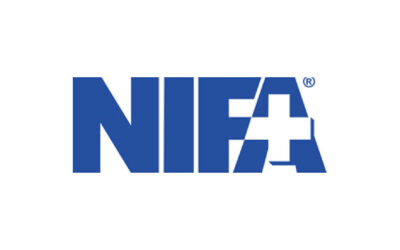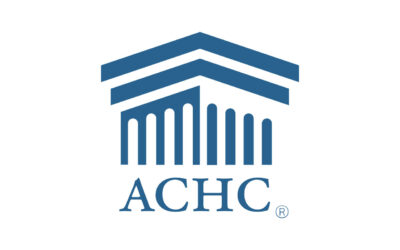by William Prentice
Data collection for a national ASC quality reporting program tied to the services that ASCs provide to Medicare beneficiaries and coordinated by the Centers for Medicare and Medicaid Services (CMS) began in 2012. Believing that a national ASC quality reporting program managed by CMS would allow ASCs to demonstrate the high quality of care that they provide and provide lasting benefits for patients, the ASC community had long advocated for a program of this kind. To support the program’s development, representatives of the ASC community worked with the National Quality Forum (NQF) to identify measures that would be both meaningful and appropriate for the ASC setting.
Early in the program, CMS asked ASCs to report on five measures backed by both the ASC community and NQF. Four of the measures involved the reporting of adverse events, such as patient falls and wrong-site surgery, and one targeted the timing of the delivery of prophylactic IV antibiotics before surgery. ASCs embraced the new program, and more than 98 percent of eligible centers complied with the reporting requirements in the program’s first year.
From the beginning, CMS indicated that ASCs would be asked to report on additional quality measures in the future. Two of those measures that CMS identified early on were the use of a safe surgery checklist and influenza vaccinations among healthcare professionals who work in ASCs. Beginning in 2013, CMS also asked ASCs to begin reporting surgical volume for certain procedures performed in the previous calendar year. Although those reports did not pertain directly to quality of care, ASCs worked to comply.
Despite some difficulties that ASCs encountered in determining how to report the original five measures on their Medicare claim forms and gaining access to the CMS QualityNet website that they use to report the other data, the program appeared to be heading in a good direction and the ASC community looked forward to seeing the results of the data collection.
In the middle of last year, however, CMS issued its proposed 2014 Medicare ASC payment rule. In that proposed rule, CMS identified four new measures that the agency planned to ask ASCs to report:
- Complications within 30 Days Following Cataract Surgery Requiring Additional Surgical Procedures
- Endoscopy/Poly Surveillance: Appropriate follow-up interval for normal colonoscopy in average-risk patients
- Endoscopy/Poly Surveillance: Colonoscopy Interval for Patients with a History of Adenomatous Polyps — Avoidance of Inappropriate Use
- Cataracts — Improvement in Patient’s Visual Function within 90 Days Following Cataract Surgery
ASCA and many others in the healthcare community immediately objected to all four measures, noting that they do not reflect the quality of care an ASC provides and do not address operational
areas under the control of an ASC. Instead, they are measures that physicians monitor and are already being reported in the Physician Quality Reporting System (PQRS). Because ASCs do not manage or maintain all of the records where this information could be found, collecting the necessary data to submit these reports is likely to involve a time-consuming and cumbersome process that would be redundant with work others are already doing and reports already being filed elsewhere.

ASCA and others submitted comments on the proposed rule, reiterating the ASC community’s support for the national quality reporting program but registering objection to the new measures. In response, CMS removed “Complications within 30 Days Following Cataract Surgery Requiring Additional Surgical Procedures” but kept the other three measures in the final 2014 ASC payment rule that it issued late last year. As a result, ASCs are preparing to begin collecting data as early as April 1, 2014, to be able to meet the program’s reporting deadlines.
Since CMS adopted the three measures contained in its final ASC payment rule for 2014, ASCA and others have been talking with CMS officials and members of Congress about ways of minimizing the burdens that the new measures might place on ASCs. In early February, ASCA joined the American Society for Gastrointestinal Endoscopy (ASGE), the American Gastroenterological Association (AGA) and the American College of Gastroenterology (ACG) in a meeting with CMS staff to discuss the two gastrointestinal (GI) measures. Later in the month, ASCA, the Outpatient Ophthalmic Surgery Society, the Academy of Ophthalmology and the American Society of Cataract and Refractive Surgery met with CMS staff to discuss the measure involving cataract surgery.
ASCA and the GI and ophthalmology communities have also requested that CMS continue to work with the ASC community to minimize the reporting burden and redundant reporting efforts that the newly adopted measures create and seek consensus on future additions to the program. Suggestions for areas that new measures might address include equipment processing, sedation safety, patient experience/satisfaction and post-discharge emergency department visit within 72 hours of an ASC procedure.
To learn more about any progress that we make in this area, please check the “Latest News” section on the home page of ASCA’s website (www.ascassociation.org) regularly. If you would like to be involved in ASCA’s efforts related to this issue, please contact Kara Newbury at knewbury@ascassociation.org.
Failure to address the concerns that ASCA and others have raised regarding these new quality reporting measures will undermine the national ASC quality reporting program that CMS has established, reduce the value of the program to Medicare and its beneficiaries and place unreasonable burdens on ASCs that will not contribute to improved quality in the ASC setting in any way.
William Prentice is the chief executive officer of the Ambulatory Surgery Center Association.








